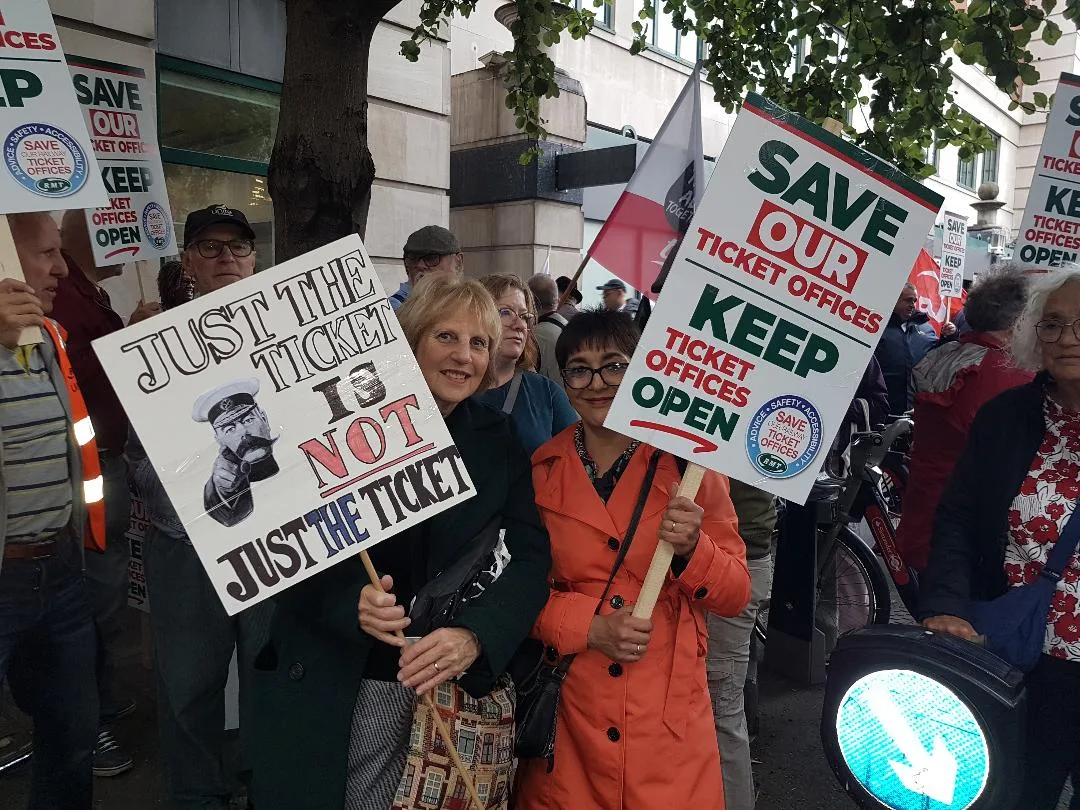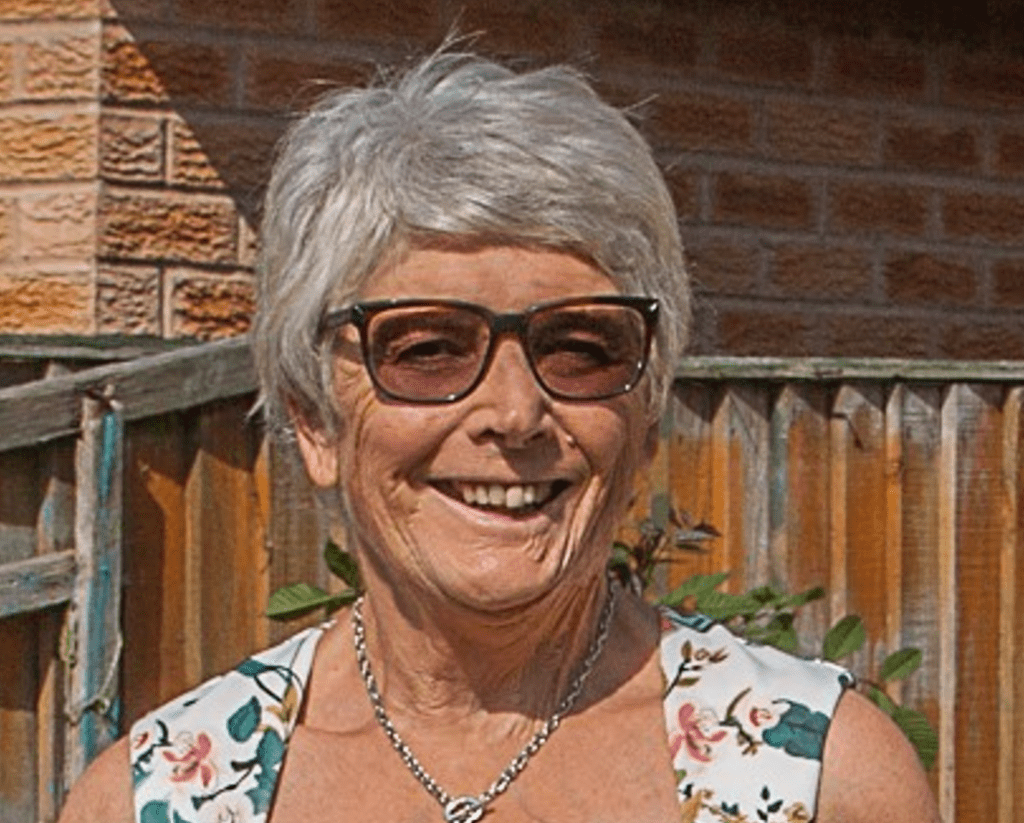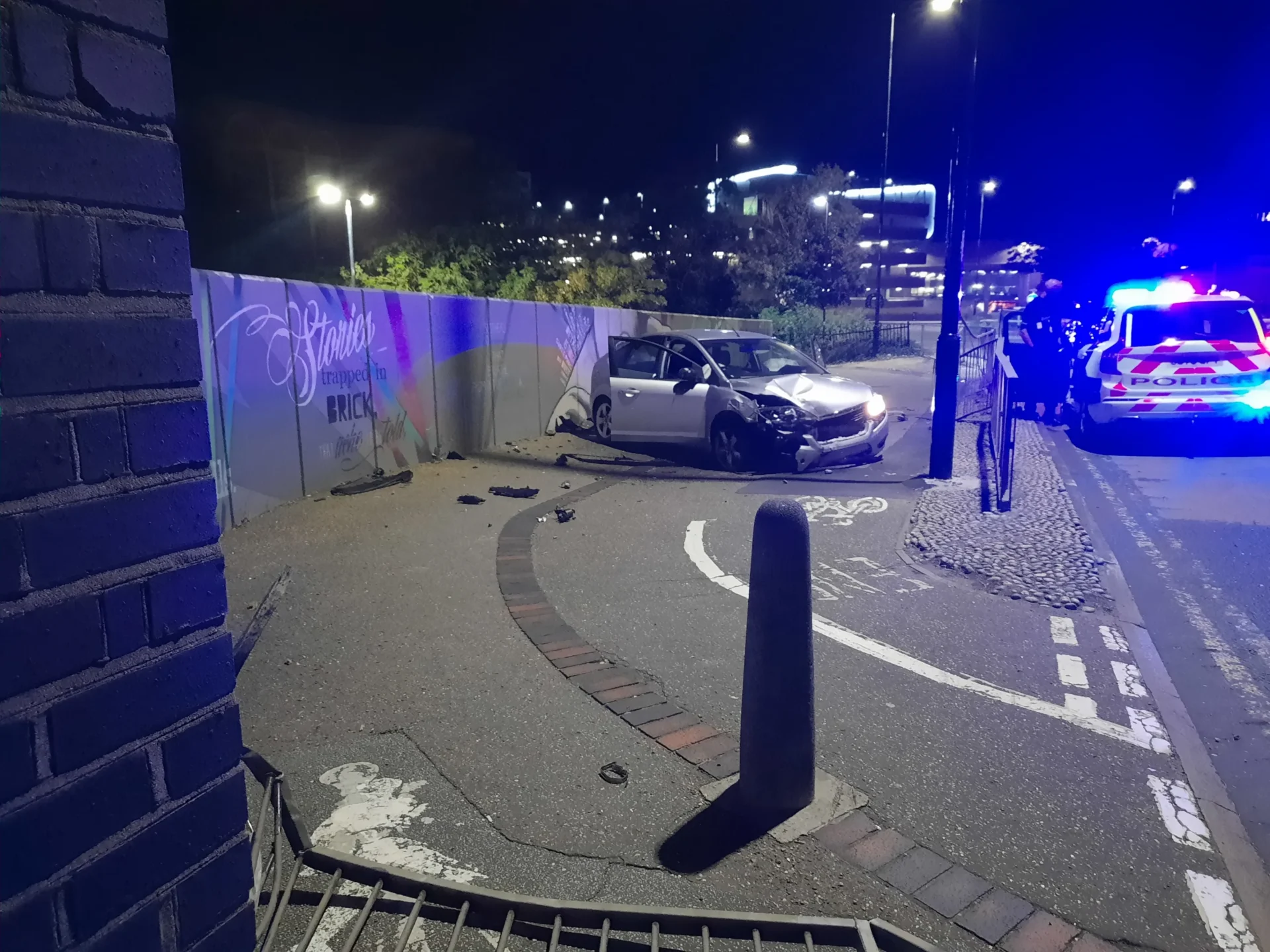The news that 1,000 railway station ticket offices are NOT going to be closed after all – CambsNews campaigned vigorously against the closures – has been warmly welcomed. However, while passengers and trades unions cheered the government U-turn, the railway companies demanded to know how else they were going to save money – thus giving the lie to the myth that the move was ever about “modernisation”.
No one denied now that it was purely cost cutting – which could only be achieved by sacking staff.
Mick Lynch The general secretary of the RMT (National Union of Rail, Maritime and Transport Workers) described the decision as “a complete victory”.
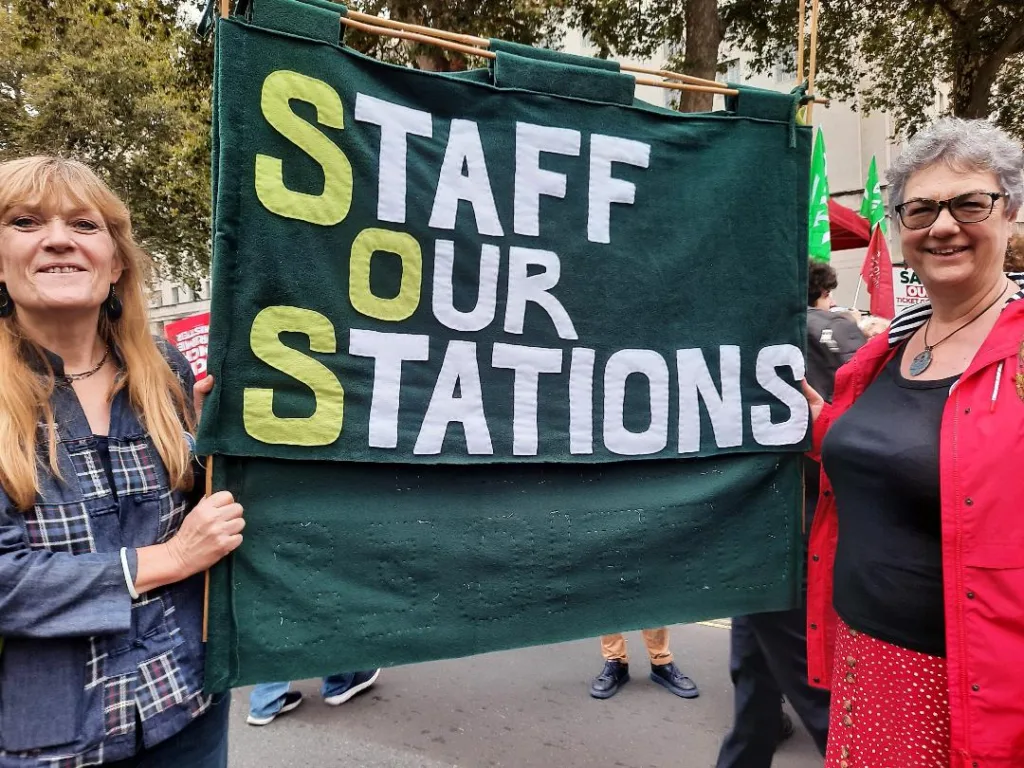
He said: “We are now calling for an urgent summit with the government, train operating companies, disabled and community organisations and passenger groups to agree a route for the rail network that guarantees the future of our ticket offices and station staff jobs to deliver a safe, secure and accessible service that puts passengers before profit.”
In Cambridge, Amanda Taylor, who was on the protest march in August and put the matter on the agenda at this year’s Lib Dem Party Conference said she was delighted.
She said: “The government has heeded the cries of the travelling public and dropped the reckless plan to close ticket offices. This is a victory for train passengers, especially the many with disabilities, women, and vulnerable people.”
Among the objections raised by the 750,000 people who opposed the move in the public consultation was the danger to vulnerable people and women presented by unstaffed stations.
Anthony Smith of the independent watchdog Transport Focus said on BBC Radio 4 today (Tuesday, October 31) that a wide number of the public had objected to the proposals, there had been “a strong public response.”
He accepted that savings had to be made but he said it had to be done in the right way. The proposal to close ticket offices was “to the extreme detriment of a large group of passengers.” He added that machines simply couldn’t cope with the volume of traffic.
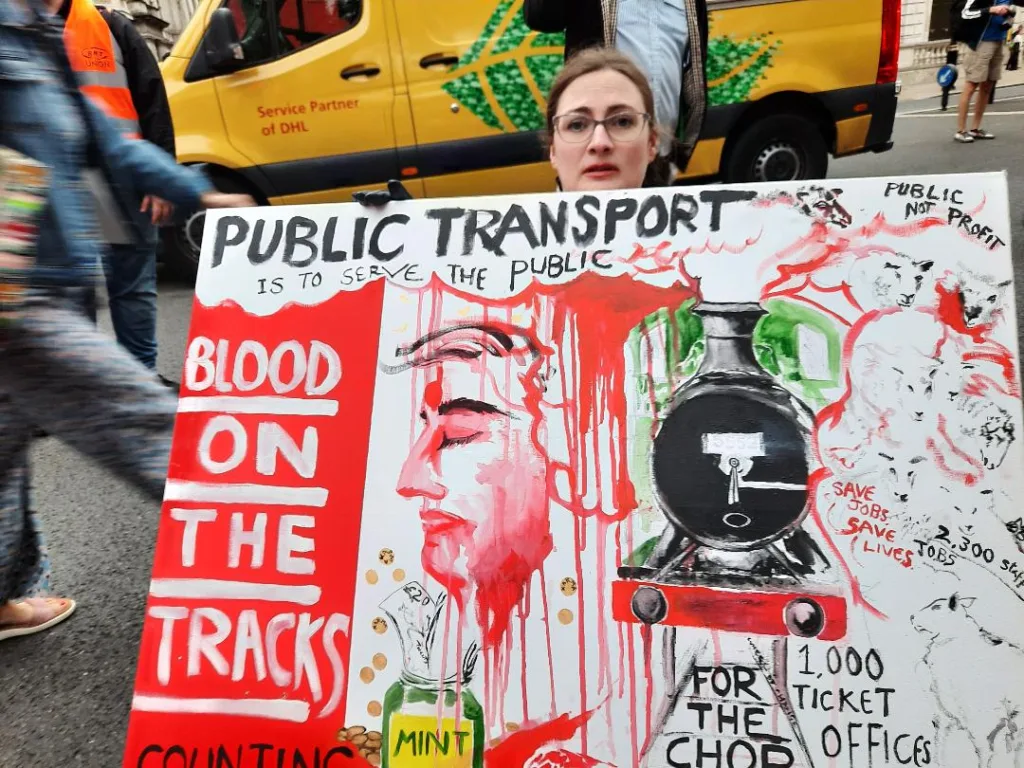
He said the role of station staff was more complex than just selling tickets. “They give reassurance, assistance and information.” Staff would be more difficult for people to find if they were not in the ticket offices he said and “All the responses showed that passengers like seeing staff.”
In August, an estimated 1,000 people, one for every ticket office that the railway companies planned to close, took their protest to Downing Street. The RMT – who organised the march, said 2,300 staff faced the sack.
Speakers at the demonstration included Sarah Leadbetter, campaigns officer for the UK National Federation of the Blind who said she would no longer be able to travel. “I will be isolated and have to stay at home. It’s denying our rights.” She recalled falling over at a railway station. “My bum was on the platform and my legs were under a stationary train.” Fortunately, there was a member of railway staff there to help her.
The MP for Slough, Tanmanjeet Singh Dhesi, (Tan Dhesi) Shadow Minister for Rail, described the “managed decline” of the railways, saying this was deliberate government policy.
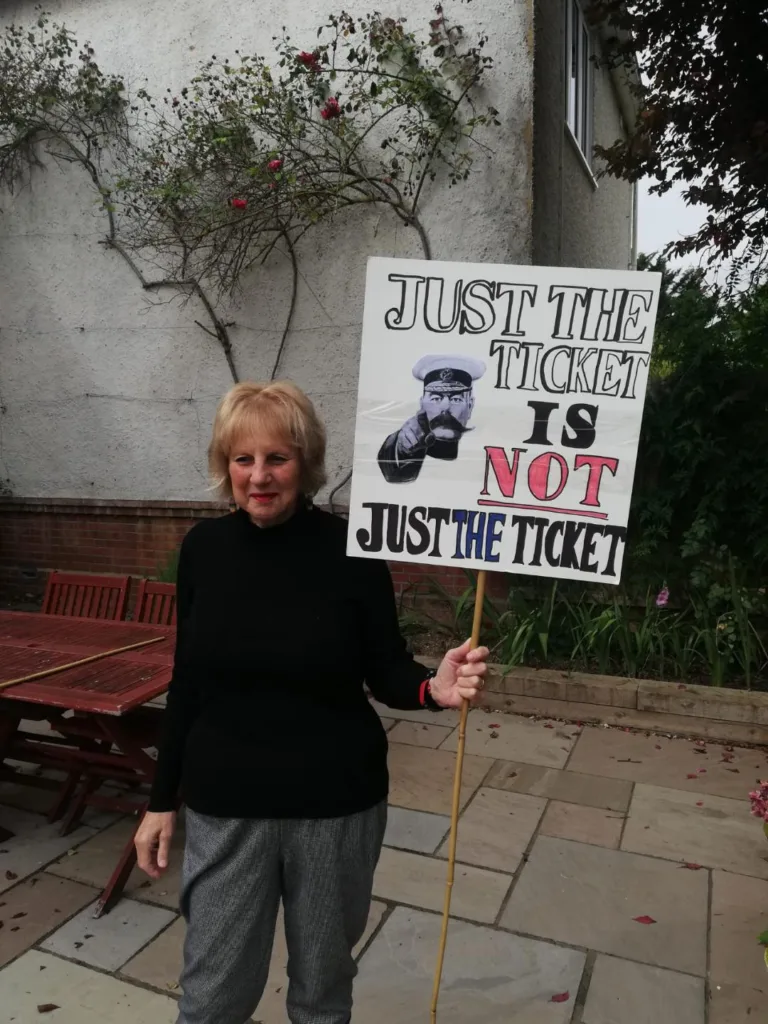
Another speaker, the now Independent MP, Jeremy Corbyn, had the previous week travelled from Edinburgh to London on a train stopped at Newark by a suicide.
As Corbyn told the crowd, a police officer lost his life trying to save someone from taking their own life. He said: “A tragic, tragic situation – all the trains were stopped. People had to make other arrangements. I stayed over in York and the next morning I went to the ticket office at York Station, absolutely wonderful service by all the staff there, empathetic, supportive, understanding, well informed and able to deal with the situation.
CambsNews joins Cambridgeshire protestors to keep rail ticket offices open
“They issued alternative tickets to people, helped them make other arrangements, explaining how to get to where they had to go. Just imagine if there had been no ticket office, there had been no staff, if there had been one person walking round the station with a machine. Imagine the anger, the tension, the stress, and the chaos that would result.”
He said it was also a matter of safety. “Railways workers “Don’t just despatch trains, they don’t just serve food and clean the trains and clean the station, they are also the human face on the station.
“If our stations are going to be de-staffed or so dramatically reduced there are only one or two people on the whole station, that makes them dangerous places.
“It makes single people travelling at night more vulnerable, it makes women who are under threat or being harassed more vulnerable. This is about jobs; it is about money but it’s also about services. I say to the railway companies, your bottom line is profit. Our bottom line is service to the public.”
Mick Lynch said at the demonstration that his members had been campaigning on this issue for more than three years and it was a poor response to their dedication during the days of Covid.
He told MPS: “The closure of ticket offices in England will lead to a railway where people will not want to travel once the sun’s gone down. “


